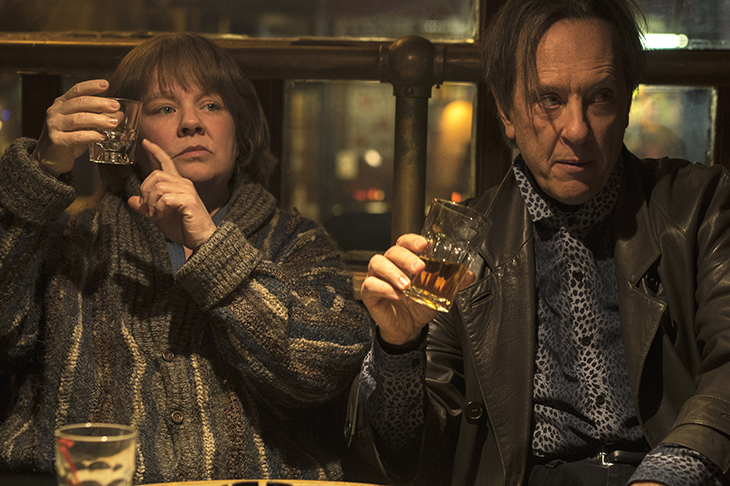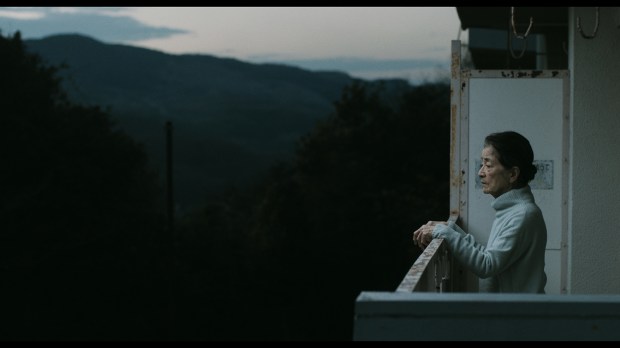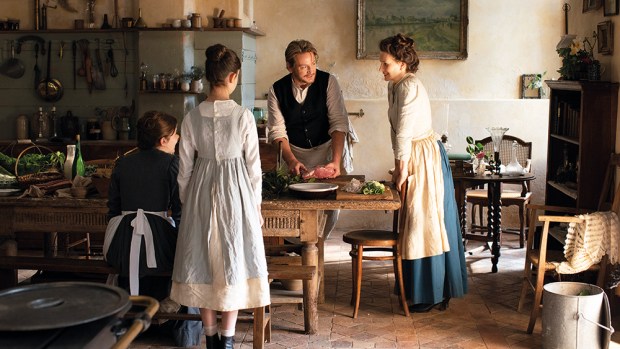Can You Ever Forgive Me? is a true story based on the 2008 memoir of Lee Israel, the writer who turned her hand to forging literary letters and who became, as she puts it, ‘a better Dorothy Parker than Dorothy Parker’. So it’s that story, but it also isn’t. That story is here but the real story, I would say, is about loneliness and alcoholism and two outsiders who, in a Midnight Cowboy sort of way, form a friendship at a desperate time. And it is rivetingly moving on this count, as are the performances from Melissa McCarthy (Oscar-nominated) and Richard E. Grant, also Oscar-nominated. (Great, although it does now look as if his work on Spice World will never be recognised. A pity, but there you are.)
Directed by Marielle Heller with a screenplay by Jeff Whitty and Nicole Holofcener, the film is set in New York in 1991 and opens with Lee (McCarthy) being fired as a legal proofreader for drinking on the job and telling her boss to ‘fuck off’.
This is so Lee, we will discover. She once had a New York Times bestseller (a Tallulah Bankhead biography) but her book on Estée Lauder has tanked and her agent won’t take her calls unless she pretends to be Nora Ephron. She can’t get an advance and has hit hard times. She owes rent on her fly-infested apartment. (I hope you have a strong stomach. The source of the flies, once found, is not pretty.) Her beloved cat is sick but she can’t afford the vet. She pushes everyone away from her. She turns up at her agent’s party and insults Tom Clancy (‘jackass!’) before stealing toilet paper, the guest soap and a coat. You would probably have found her intolerable had you met her for real, particularly if she’d made off with your coat and your soap, but here’s what’s magic: you’re totally entranced by her. She’s smart and funny and angry and acerbic and says the unsayable, which is wonderfully enjoyable. (‘Jackass!’)
Anyway, she’s forced into selling her possessions, starting with a letter she once received from Katharine Hepburn. She then happens upon a couple of actual letters from Fanny Brice, but they’re bland, and don’t fetch much, so she forges a better one. And so it begins, selling letters ‘written’ by Parker, Noël Coward, Lillian Hellman and more. But to avoid detection she needs a frontman, which is where Jack Hock (Grant) steps in. Jack is gay and flamboyant and a fellow alcoholic always up for a good time, even though you can see the aloneness in his eyes too. Their relationship with each other is the closest either can get to connecting with another, and they can be riotous. (There’s a particularly excellent prank call.) He becomes her accomplice after she swears him to secrecy. He says: ‘I have no one to tell. All my friends are dead.’ This is set during the Aids crisis, not that the film hammers that home.
It doesn’t hammer anything home. There is no heavy-handed exposition, no back stories. The characters arrive as is. Why does Lee push everyone away? No idea. But we know that she does because we see it. McCarthy, who is best known for her full-on comedy chops, embodies Lee perfectly. She captures not just her smarts, but also the vulnerability and truthfulness which, in turn, capture our sympathy and affection. Meanwhile, Grant’s performance isn’t a million miles from Withnail, but if you want that kind of performance no one does it better than him, and he offers a final scene that is emotionally devastating. Two films for the price of one. Bargain.
Got something to add? Join the discussion and comment below.
Get 10 issues for just $10
Subscribe to The Spectator Australia today for the next 10 magazine issues, plus full online access, for just $10.
You might disagree with half of it, but you’ll enjoy reading all of it. Try your first month for free, then just $2 a week for the remainder of your first year.














Comments
Don't miss out
Join the conversation with other Spectator Australia readers. Subscribe to leave a comment.
SUBSCRIBEAlready a subscriber? Log in